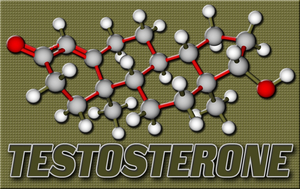 Hormone Replacement Therapy (HRT) has become increasingly popular in recent years. Yet, many family and general practitioners are still not well-versed in the intricacies of hormone deficiencies and modern HRT treatments.
Hormone Replacement Therapy (HRT) has become increasingly popular in recent years. Yet, many family and general practitioners are still not well-versed in the intricacies of hormone deficiencies and modern HRT treatments.
This lack of knowledge can fail to recognize when a patient would benefit from a referral to a specialist and can limit the options available to patients seeking treatment.
In this article, we will explore why this knowledge gap exists and why proactively seeking the advice of a specialist – like the ones at our clinic – can lead to better outcomes.
One of the reasons why general practitioners may not be knowledgeable about HRT is that it is a rapidly evolving field. New studies are constantly being published, and new treatments are being developed, making it challenging for general practitioners to stay up to date.
Additionally, HRT is a complex and specialized field that requires a deep understanding of hormones and their interactions. It can be difficult for a general practitioner with a broad range of responsibilities to master.
 In contrast, board-certified HRT specialists have committed to staying current in the field and often focus exclusively on diagnosing and treating hormone deficiencies.
In contrast, board-certified HRT specialists have committed to staying current in the field and often focus exclusively on diagnosing and treating hormone deficiencies.
This dedication allows them to provide their patients with a level of care unparalleled by general practitioners, who may only have a general understanding of HRT.
Another factor contributing to the knowledge gap between general practitioners and HRT specialists is the approach to treatment. General practitioners may not have the specialized equipment or expertise to diagnose a hormone deficiency and may rely on standard blood tests to determine a patient's hormone levels.
However, these tests can be unreliable, and a more comprehensive evaluation is often needed to diagnose a hormone deficiency accurately. On the other hand, HRT specialists have access to the latest diagnostic tools and techniques and can provide a more accurate diagnosis, leading to more effective treatment.
 Proactively seeking the advice of a specialist can lead to better outcomes for those with hormone deficiencies.
Proactively seeking the advice of a specialist can lead to better outcomes for those with hormone deficiencies.
Specialists can provide a more comprehensive evaluation, leading to a more accurate diagnosis and effective treatment plan.
Additionally, specialists can often offer more advanced treatment options, such as bioidentical hormone replacement therapy, which is unavailable through general practitioners.
Another benefit of seeking the advice of a specialist is that they can provide a higher level of care and support throughout the treatment process.
Specialists understand the complex nature of hormone deficiencies and can provide their patients with education, guidance, and support to help them make informed decisions about their treatment. This can lead to better outcomes and a higher quality of life for patients.
 In conclusion, while general practitioners may have a general understanding of HRT, their field knowledge is often limited.
In conclusion, while general practitioners may have a general understanding of HRT, their field knowledge is often limited.
This can fail to recognize when a patient would benefit from a referral to a specialist and can limit the options available to patients seeking treatment.
Proactively seeking the advice of a specialist can lead to better outcomes, as specialists can provide a more comprehensive evaluation, offer advanced treatment options, and provide a higher level of care and support.
By finding a board-certified HRT specialist, one can ensure that one receives the best possible care and achieve the best possible outcome from one’s HRT treatment.
Contact Us Today For A Free Consultation

- Ten Simple Steps That You Can Take To Knock Out Stress [Last Updated On: May 2nd, 2024] [Originally Added On: June 11th, 2020]
- Natural, Simple Ways to Improve Your Sleeping Habits [Last Updated On: April 18th, 2024] [Originally Added On: June 26th, 2020]
- Ten Ways to Manage Cholesterol and Testosterone Levels [Last Updated On: May 30th, 2024] [Originally Added On: July 16th, 2020]
- Five Kinds of People that Have a Lot of Sex! [Last Updated On: April 11th, 2024] [Originally Added On: July 17th, 2020]
- Ditch the Alcohol if You Want to Maximize the Benefits and Gains From Weightlifting [Last Updated On: January 22nd, 2024] [Originally Added On: July 18th, 2020]
- 13 Issues That Can Kill Your Libido [Last Updated On: March 15th, 2024] [Originally Added On: July 19th, 2020]
- Ten Ways to Enhance Your Metabolism [Last Updated On: June 28th, 2024] [Originally Added On: July 20th, 2020]
- Fourteen Common Causes of Fatigue and What You Can Do to Improve Your Energy Levels! [Last Updated On: June 21st, 2024] [Originally Added On: August 4th, 2020]
- Testosterone's Effects Upon the Human Body [Last Updated On: June 11th, 2024] [Originally Added On: August 9th, 2020]
- Fifteen Foods That Can Help You Get Your LDL Cholesterol Under Control [Last Updated On: May 1st, 2024] [Originally Added On: November 28th, 2020]
- Exercise Optimizes Testosterone Production [Last Updated On: January 29th, 2024] [Originally Added On: February 13th, 2021]
- How to Get Bigger Arms [Last Updated On: November 25th, 2024] [Originally Added On: March 14th, 2021]
- It’s True: Stress Causes Hair Loss and Thinning Hair, According to Science [Last Updated On: August 29th, 2024] [Originally Added On: May 4th, 2021]
- Magnesium and Preventing Kidney Stones [Last Updated On: October 22nd, 2024] [Originally Added On: January 18th, 2023]
Word Count: 547





















